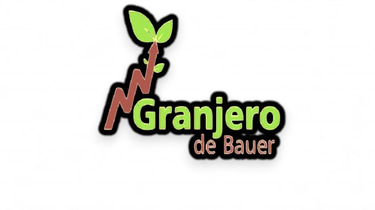Did You Know Coffee Was Once Tagged a Narcotic Drug? Fascinating Stories of Narcotics and Their Impact on the Nigerian Economy
Effects of Narcotics in the Nigerian Economy: Coffee leads
Lawal Abdulrahman Temitope
9/3/20243 min lire


When you sip your morning coffee, you probably don't think of it as a "narcotic." Yet, there was a time in history when coffee was considered a highly controversial substance, even categorized as a drug that led to addiction and moral decay. The fascinating story of coffee's rise from a banned substance to a beloved global beverage sheds light on broader narratives surrounding narcotics, their regulation, and their influence on economies—especially in countries like Nigeria, where narcotics have had a complex and often controversial impact.
Coffee! From Narcotic Drug to Morning Routine
Coffee has a long and winding history, filled with controversy and suspicion. In the 16th century, coffee was labeled a "narcotic" by the authorities in Mecca. Religious leaders believed that coffee, much like alcohol, induced altered states of mind and could cause social unrest. Coffee houses became meeting points for free thinkers, artists, and revolutionaries, further raising alarm among the ruling elite.
Interestingly, similar bans occurred in Europe, particularly in Italy, where the Catholic Church initially condemned coffee as the "devil's drink." However, after Pope Clement VIII sampled the beverage, he declared it to be delightful and, in essence, baptized it, removing its association with heresy and narcotics. What was once perceived as a harmful, addictive drug is now a daily necessity for millions worldwide, with coffee shops seen as cultural and social hubs.
This transformation in how we view coffee invites us to explore how other substances, once considered dangerous narcotics, have shaped history—and continue to do so, particularly in Nigeria.
The Nigerian Economy and the Shadow of Narcotics
Nigeria, as Africa’s largest economy, has a complicated relationship with narcotics. Although coffee’s narcotic classification has long since vanished, many substances continue to occupy a legal and economic gray zone, influencing Nigeria's economy in unexpected ways.
1. Cannabis, A Lucrative and Illegal Trade
Cannabis, often called "Igbo" in Nigeria, remains one of the most widely consumed illicit drugs in the country. Though illegal, Nigeria is one of the largest cannabis producers in Africa. The United Nations Office on Drugs and Crime (UNODC) estimates that millions of Nigerians use cannabis, despite its strict legal status.
The economic impact of cannabis in Nigeria is complex. On one hand, it represents a massive, untapped market for potential taxation and regulation. On the other hand, the illicit trade is linked to organized crime, corruption, and social unrest. If cannabis were ever legalized in Nigeria, the potential for economic gain through exports, regulated sales, and taxation could be enormous.
However, legalizing cannabis would require overcoming significant social and political resistance, given its current association with crime and moral decay. Much like coffee in its early years, cannabis suffers from the stigma of being labeled a harmful narcotic. As global attitudes toward cannabis evolve, it's worth wondering whether Nigeria will follow the global trend of legalizing and regulating the drug, transforming it from an underground trade to a formal sector within its economy.
2. The Rise of Codeine Abuse: A Public Health Crisis
One of the more alarming narcotic crises Nigeria has faced in recent years is the abuse of codeine—a drug found in some cough syrups. Codeine is classified as an opioid and, in small doses, it’s used to treat pain and suppress coughing. However, it has gained notoriety in Nigeria as a recreational drug, particularly among young people.
The widespread abuse of codeine-based syrups prompted the Nigerian government to ban its sale in 2018, but the problem persists through black-market sales. The economic implications are far-reaching: while pharmaceutical companies saw lucrative profits from the legal sale of these products, the aftermath of the ban has contributed to a thriving illicit trade network that law enforcement struggles to control.
Moreover, the public health crisis resulting from codeine addiction places a significant burden on Nigeria's healthcare system, further stressing an already strained infrastructure. The codeine epidemic serves as a sobering reminder of how narcotic substances can rapidly evolve from medically beneficial drugs to public health disasters when regulation and enforcement fail.
3. The Trafficking of Hard Drugs: Nigeria’s Global Reputation
Nigeria has long been a significant transit hub for the trafficking of hard drugs, particularly heroin and cocaine. These drugs are smuggled into the country, often en route to Europe, North America, and Asia. Despite numerous government efforts to curb drug trafficking, it remains a persistent issue, partly due to Nigeria's strategic geographic location.
The involvement of drug cartels and organized crime in this trade has had damaging effects on Nigeria's economy and international reputation. The illicit drug trade not only fuels corruption but also damages foreign investment prospects and contributes to social instability. Yet, for many impoverished Nigerians, involvement in the drug trade can appear as a quick and lucrative escape from poverty, creating a vicious cycle that is difficult to break.
The economic consequences of being a key transit country for drugs are twofold: while some individuals profit handsomely, the broader impact on societal stability and governance is profoundly negative. This complex interplay between illegal narcotics and Nigeria’s economy shows how deeply intertwined drugs can be with a nation’s development trajectory.
